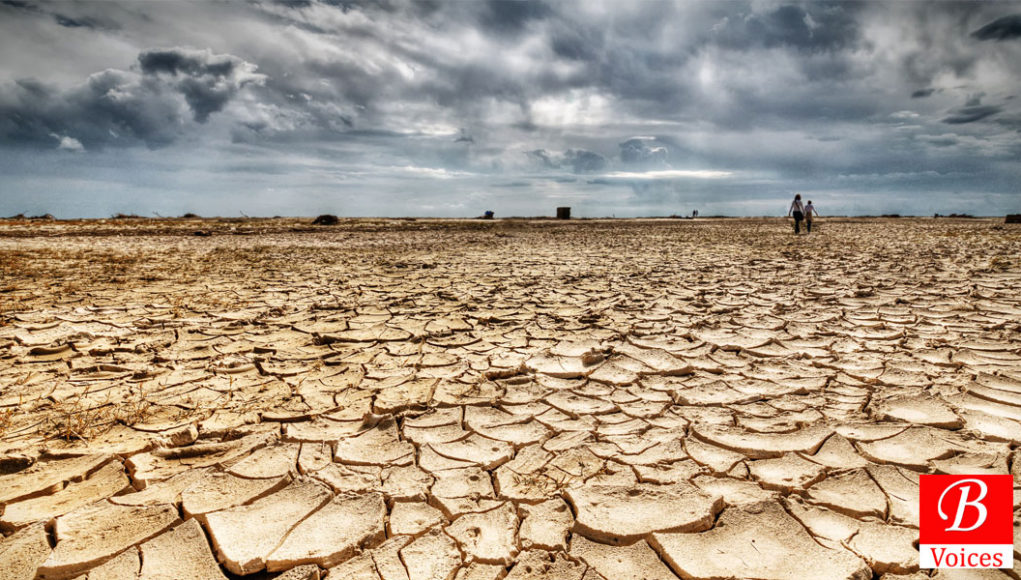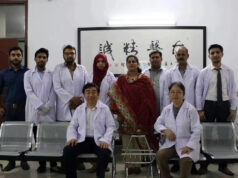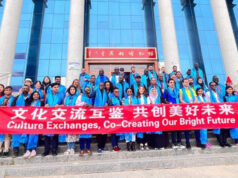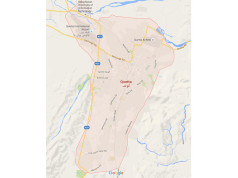 Abdul Raheem
Abdul Raheem
Much has been jotted down and less performed about global climate change (GCC) across the globe particularly in the province Balochistan. A general consensus has emerged from Scholars that the future consequences of climate change will be extremely larger and will continue to degrade the environment drastically during the upcoming decades if people and communities kept on lagging behind in altering their behavior and in learning coping strategies to climate impacts.
In 2003 Khalid Tahsin published an article in the Midwestern University in one of the journals of “Environmental Education Research” in which he had endeavored to identify high school science teachers’ misconceptions regarding environmental phenomena. Thus, his survey data analysis indicated that numerous high school science teachers had an array of misconceptions about the causes and impacts of the three environmental issues: greenhouse effects, ozone depletion, and acid rains. Likewise, some similar results could be traced in high schools of province Balochistan and Sindh.
Meanwhile, climate change results in new conditions in several respects. It is not only severe events and variations in temperature, decreased annual rainfalls, shift of rainy seasons or water depletion that have affected people in the worldwide but climate change has also exacerbated people’s plight in a number of other ways: from effects on gender to climate-induced migration, agriculture, livestock, undernourished children and hindrance of economic growth, in case of province Balochistan all are results of climate change. Larger segment of families in Balochistan mostly relay on their livelihood earnings on livestock, farming and agriculture activities. Virtually, all the agrarian communities of Balochistan in the rural excessively pay for, each time drought hits them.
Historically, Balochistan has been prone to the impact of climate change, such as during 1997-2002 was the driest and longest period which severely affected agriculture production and livestock and compelled people to migrate towards larger cities of the country. However, in the context of susceptibility to any natural or man inflicted calamity, the world has believed in the paradigm shift from post-disasters to the pre-disaster mechanism. Governments are now more focused on pre-disaster phases than post-disaster ones. Such proactive steps about minimizing the future impacts of climate change via limiting deforestation, scaling up reforestation and afforestation, through million trees plantation programs, construction of miner dams in various districts of Balochistan and throughout the country and educating farmers are appreciative initiatives.
Above all, in case of multifaceted problems ridden province Balochistan and one of the most drought-hit region, which is also ranked the poorest among the other provinces of the country by UNDP recent reports if desires to combat the aggravated event of the uncertainty in climate change effects, mitigation costs and their distribution patterns in its true essence, it needs to comprehend impacts of climate change in its geographical and cultural contexts for which it is necessary to examine landscape of disaster experts’ opinion and credibility to constitute expertise.
In this regard, the forgotten names of Associate Prof Dr. Syed Ainuddin, who is a foreign Ph.D. in disaster management and serving as a chairperson of department of Disaster Management and Development Studies and acting D.G of student affairs, in University of Balochistan; Assistant Prof Dr. Ghulam Murtaza Bugalzai and Assistant Prof Dr. Muhammad Ashraf, serving as lecturers in the department of disaster management of university of Balochistan, are supposed to be taken on board for holding high school science teachers trainings and seminars and educating farmers regarding climate issues to address their deficiencies regarding environmental phenomena and moreover for mitigation, adaptation and policy formation to climate change.
Since experts disseminate their scientific insight bearing in mind the geographical and cultural traits of communities, politicians and other groups in society, the insight can be integrated into a broader picture to be utilized for making decisions of various types. Such scientific insight escorts to a healthy discussion on priorities and political decisions on identification and mapping vulnerable regions and regarding climate change mitigation and adaptation measures.
However, excluding academic intelligentsia in combating climate change can yield huge stress and cause serious flaws in both: in training high school science teachers and also make matters worse in policymaking and can ultimately affect masses in decision making and coping with climate change. Therefore, the Government, particularly in Balochistan, is supposed to bring about reforms and make an outline to take serious steps by consulting illumes to tackle the effect of climate change for the sake of next generation.
The writer holds a M.Phil, in Disaster Management from the University of Balochistan, Quetta.
Disclaimer: Views expressed in this article are those of the author and Balochistan Voices not necessarily agrees with them.
Share your comments!








